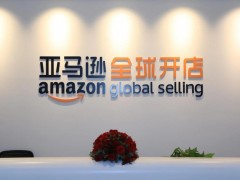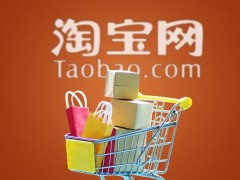Where is the best place to buy clothes?
衣服进货的选择取决于您的具体需求、目标市场和预算。
以下是一些常见的衣服进货渠道和它们的特点:
1. 批发市场:全球许多城市都有专门的批发市场,如中国的广州十三行、杭州四季青等,这些市场以价格合理和种类繁多著称。亲自去市场选购可以现场检查衣物质量,并与供应商面对面交流。
2. 工厂直销:与制造厂家直接合作可以获得较低的进货价格,尤其适合大批量采购。这通常需要您国外旅行到生产国家,或者通过代理商来进行沟通和谈判。
3. 在线批发平台:随着电商的发展,越来越多的在线批发平台出现,如阿里巴巴、环球资源等。它们提供搜索不同供应商、比较价格和最小订单量的便利性。
4. 展览会和交易会:参加服装行业的展览会和交易会可以让您发现最新趋势和设计,同时与多个供应商建立联系。这些活动通常每年在各大城市轮流举行。
5. 本地制造商:支持本地生产正在成为一种趋势。与当地制造商合作可以减少运输成本和时间,同时有助于提升品牌形象。
6. 打样和定制:如果您有自己的设计或特定的质量要求,可以选择与供应商合作进行打样和定制生产,以确保产品符合您的品牌定位。
7. 二手市场:对于预算有限或是经营复古、环保服装店的商家来说,从二手市场进货可能是一个不错的选择。
8. 跨国采购:一些国际品牌可能会选择在不同国家设立采购办事处,以便更好地管理供应链,并确保质量控制。
Professional answer
The choice of where to buy clothes depends on your specific needs, target market and budget.
The following are some common channels for buying clothes and their characteristics:
1. Wholesale market: Many cities around the world have dedicated wholesale markets, such as Guangzhou Shisanhang and Hangzhou Sijiqing in China, which are famous for their reasonable prices and wide variety. Going to the market in person to buy can check the quality of clothes on the spot and communicate with suppliers face to face.
2. Factory direct sales: Direct cooperation with manufacturers can get lower purchase prices, especially for large-volume purchases. This usually requires you to travel abroad to the country of production, or communicate and negotiate through agents.
3. Online wholesale platforms: With the development of e-commerce, more and more online wholesale platforms have emerged, such as Alibaba, Global Sources, etc. They provide the convenience of searching different suppliers, comparing prices and minimum order quantities.
4. Exhibitions and trade fairs: Attending exhibitions and trade fairs in the clothing industry allows you to discover the latest trends and designs and establish connections with multiple suppliers at the same time. These events are usually held in major cities in rotation every year.
5. Local manufacturers: Supporting local production is becoming a trend. Working with local manufacturers can reduce transportation costs and time, while helping to enhance the brand image.
6. Prototyping and customization: If you have your own design or specific quality requirements, you can choose to work with suppliers for prototyping and customized production to ensure that the product is in line with your brand positioning.
7. Second-hand market: For merchants with limited budgets or running vintage, environmentally friendly clothing stores, purchasing from the second-hand market may be a good choice.
8. Cross-border procurement: Some international brands may choose to set up procurement offices in different countries to better manage the supply chain and ensure quality control.
People who do clothing business hope to get more economic benefits. The clothes they buy must be good quality and cheap. It is best to go to Guangzhou to buy because the clothes in Guangzhou are more fashionable.
Hangzhou, Guangzhou, Beijing, Wuhan, Shanghai, Zhengzhou, Chongqing, Nanjing, Wenzhou and Changshu.
1. Zhejiang
Hangzhou Sijiqing Business District: The more famous ones in Sijiqing Clothing Business District are: Yifa Clothing City, Suzhou and Hangzhou First Station Women's Clothing Market, Old Market, Jiutian International, Four Seasons Constellation, New Hangzhou School, Baotaihe, Zhijiang Women's Clothing, No. 1 Base, Four Seasons Qiantang, Landmark International, Good Four Seasons Bags City, Binjiang Women's Clothing Market, etc.
Yiwu China Commodity City, Shaoxing China Textile City, Zhejiang Huangyan Luqiao Commodity Wholesale Market, Ningbo Cixi Zhouxiang Non-staple Food Wholesale Market, Host is Datang Textile Market, Huzhou Zhili Textile Embroidery Market, Huzhou Silk City, Hangzhou Textile Market, Jiaxing Honghe Sweater Market, Jiashan Mall, Jiaxing Tongxiang Puyuan Sweater Market, Wenzhou Yongjia Qiaotou Button Market, Xiaoshan Commercial City.
2. Jiangsu
Wusha China Oriental Silk Market, Changshu Merchants Market, Jiangyin Textile Market, Taicang Textile Market, Wuxi Merchants City Clothing Mall, Xuzhou Huaihai Food City Hanshi Market.
3. Guangdong
Guangzhou Baima Clothing Business District, Guangzhou Jinbao Clothing City, Guangzhou Hongmian Clothing City, Guangzhou Shisanhang Clothing City, Guangzhou Shahe Clothing Wholesale City, Xingning Dongyue Palace Market, Baima Clothing Wholesale Market, Guangzhou Baiyun District Yinma Clothing City, Zhongshan Shaxi Leisure Clothing Market, Guangzhou Baima Clothing Market, Shenzhen Clothing Wholesale Market, Shenzhen Huangbeiling Mall.
Clothing wholesale is a means of clothing sales, and it is also a very important process and link in the clothing industry. This link controls the most important resources of the entire clothing industry. It is an indispensable link for both manufacturers and sellers.
Similar Q&A
recommend What is the name of Alibaba's artificial intelligence?
E-c News Continuously pushing e-commerce knowledge to you








Latest Q&A More
-
Do I need a trademark to open a franchise store on Pinduoduo to sell books?
#Pinduoduo#
-
How to withdraw from a Pinduoduo store
#Pinduoduo#
-
How to withdraw from Pinduoduo merchants
#Pinduoduo#
-
How to pay fees when closing a Pinduoduo store
#Pinduoduo#
-
How to withdraw from Pinduoduo
#Pinduoduo#
-
Which store on Pinduoduo is authentic?
#Pinduoduo#
-
Which stores on Pinduoduo can buy genuine products?
#Pinduoduo#
-
How to check the store under Pinduoduo
#Pinduoduo#
-
How to receive Pinduoduo online game products
#Pinduoduo#
-
How to sell the electronic version on Pinduoduo
#Pinduoduo#
E-c News 2026-02-28 18:57:11

- African netizens use China Africa cross-border e-commerce platform for online shopping
- how is the new seller of cross-border e-commerce doing?
- how can cross-border e-commerce Amazon sell on Amazon platform without goods?
- Amazon store opening process and cost analysis!
- Amazon plans to expand its pharmacy business on a large scale and will add same day delivery service


